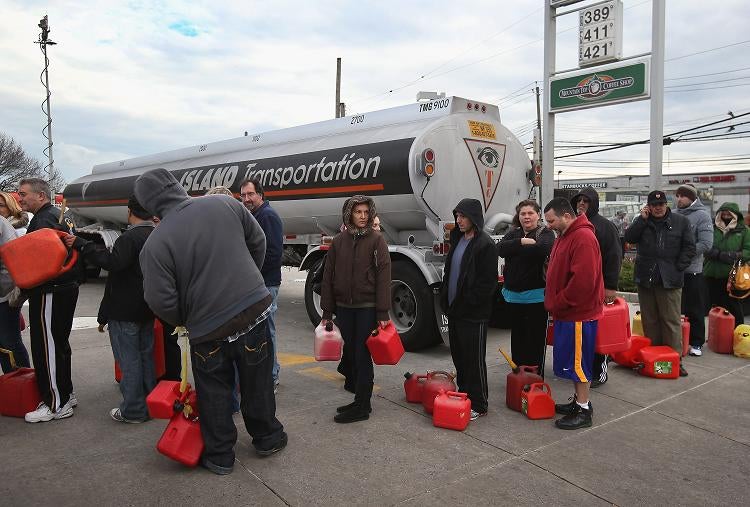Nomads in Queens endure life on the line as they forage for gas

Your support helps us to tell the story
From reproductive rights to climate change to Big Tech, The Independent is on the ground when the story is developing. Whether it's investigating the financials of Elon Musk's pro-Trump PAC or producing our latest documentary, 'The A Word', which shines a light on the American women fighting for reproductive rights, we know how important it is to parse out the facts from the messaging.
At such a critical moment in US history, we need reporters on the ground. Your donation allows us to keep sending journalists to speak to both sides of the story.
The Independent is trusted by Americans across the entire political spectrum. And unlike many other quality news outlets, we choose not to lock Americans out of our reporting and analysis with paywalls. We believe quality journalism should be available to everyone, paid for by those who can afford it.
Your support makes all the difference.Josiah Rosa is a 21st-century nomad, following Twitter updates and text messages in search of one thing: gas.
Word of mouth brought the Long Island man to a line at Channi Singh's Gulf station on Union Turnpike and Utopia Parkway in the New York City borough of Queens. After two hours of waiting he got the bad news. The well was dry.
"People decided to fill up two, three, four tanks at a time," Rosa said, holding a garbage bag with gas cans. "We have no light. I have a generator. We have kids in the house. We're traveling all over Queens, Brooklyn."
It is a scene being repeated throughout New York and New Jersey: Frustrated people, many living without, power, heat or running water, on the hunt for fuel. Their quest should become easier as the Port of New York reopens, allowing the liquid gold to start flowing and as gas stations that lost power reopened.
Singh, who was selling regular unleaded for $3.89 a gallon cash, $3.99 credit or debit at his Gulf Oil Corp. Ltd. station, the same price as before the storm, took delivery of 5,000 gallons at midnight. Singh tried to enforce limits on the amount of gas people bought and failed.
"No one listens," he shrugged. People are buying fuel and then selling it on the street at higher prices, he said.
Hurricane Sandy, the biggest Atlantic storm in history, caused at least 92 U.S. deaths and blacked out millions of homes and businesses. Six Northeast refineries with 1.17 million barrels a day of processing capacity shut or operated at reduced rates because of the storm, according to the U.S. Energy Department.
In front of the Gulf station, police officers from the 107th precinct were keeping order. One man who tried to fill up five gas cans was detained.
Drivers waiting their turn snaked around the corner to the Grand Central Parkway. Intersections were blocked. Horns blared. Rumors flew that people were trying to sell gas for $100 a gallon.
Alan Curtis, 55, whose job is to ferry drug addicts to treatment programs around the five boroughs, was trying to keep his cool after sitting in his minivan for 90 minutes. "Look at my needle! Just look at my needle!"
It was on E.
"I'm too old to be stressed out like that, because it don't help," he said. "I don't want to have a heart attack here."
Not everyone in line was in desperate need. Tyrone Cohen, a 15-year-old from Flushing who plays high school basketball, said he needed to get to a game.
A woman's voice rang out from the line of people holding gas cans
"I think we're gonna make it. I think we're going to make it."
A red flashing light behind the cash register dashed her hope, signaling that there was no more gas. The nomads moved on.
Join our commenting forum
Join thought-provoking conversations, follow other Independent readers and see their replies
Comments